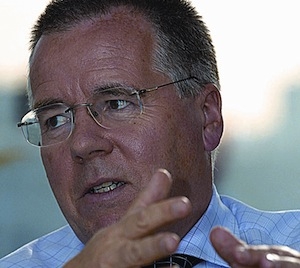SIPP industry veteran John Moret has warned the sector that it must grasp the potential impact for SIPP providers of the new Consumer Duty requirements.
He issued the warning at the AMPs seminar and AGM this week.
AMPS - the Association of Member-Directed Pension Scheme - is the SIPP sector's trade body.
He warned providers not to make the mistakes of the past that have plagued the SIPP industry.
Mr Moret is principal of consultancy MoretoSIPPs and the chair of Investor in Customers and has worked in senior executive and non-executive roles for five different SIPP providers.
He listed a number of areas that SIPP providers need to consider in preparing their first Consumer Duty report by July 2023 including:
- Whether it is appropriate to continue with the term “self invested”?
- The legitimacy of disclaimers
- The treatment and disclosure of retained interest and other commissions
- The provision of customer support for “orphan” clients
- The clarity of information provided on income drawdown and other options at retirement
- The identification and support for vulnerable clients
Mr Moret said: “The SIPP industry paid a heavy price for largely ignoring the implications of the Treating Customers Fairly regime some 15 years ago. While it is fair to say that in the past SIPP providers were not helped by the inertia and misleading comments from the FSA/FCA, and more recently some contentious FOS determinations on areas such as due diligence of investments and advisers, the same is not true of Consumer Duty.”
He said the regulator has been very clear on its cultural and operational expectations of all financial services companies.
He said: “It is vitally important that SIPP providers take the opportunity to review their propositions and operations and ensure that they have evidence to support all aspects of their Consumer Duty report.”
He added that one important issue for the whole SIPP industry to consider is whether it is responsible to continue to use the description “self-invested personal pension (SIPP)” when the majority of clients using the product are not using non-standard investments and are using a financial adviser to manage their investments.

